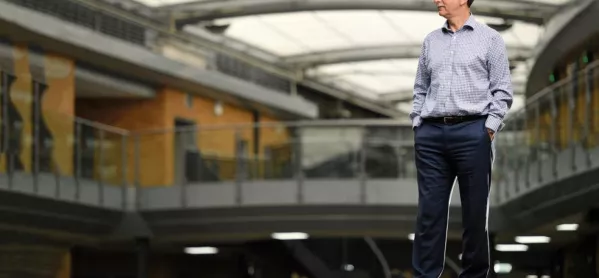The validity of this term’s new Ofsted school visits, to check on how pupils are catching up after Covid-19 disruption, is being questioned by a former senior official at the inspectorate.
Frank Norris, an ex-Ofsted manager and former academy trust chief executive, has warned that inspectors will not have relevant experience of what it has been like to lead and run a school during a pandemic.
He also told Tes that the inspectorate’s decision to publish a letter with findings on each school it visits will make it more difficult for schools to be open about the challenges they are facing returning to full-time education.
Exclusive: HMI concerns that new Ofsted visits will not work
Revealed: Why Ofsted inspectors fear becoming a Typhoid Mary with Covid-19
Heads: Dismayed school leaders and governors call for Ofsted rethink on visit letters
Ofsted will return to schools from the end of this month for new visits which will check on how schools are supporting pupils following the coronavirus lockdown. On Friday Tes revealed that there are concerns about the visits from within Ofsted’s own inspection teams.
How will Ofsted assess a school’s coronavirus response?
Now Mr Norris, who worked in several senior roles for Ofsted, has questioned the whole basis of the visits.
“Unless they are very recent school leaders, an HMI is unlikely to have led a school through a pandemic,” he said. “These are unprecedented circumstances.
“Usually with an inspection you have the framework and your own personal experience to fall back on. But, in this case, inspectors will have neither because there is no framework or criteria being used and inspectors won’t have the relevant experience of leading a school in times like these.
“It comes down to a question of validity and I think [Ofsted] will have real difficulty in interpreting the evidence that they collect.”
The inspectorate will visit around 1,200 schools between now and December, including every school that is rated “inadequate”.
The watchdog has stressed that these visits are not inspections and will not result in a graded judgement but are about “constructive conversations”.
However, Mr Norris has said that Ofsted’s decision to publish a letter about each school it visits could undermine this process.
“In the past Ofsted would visit schools and wrap up its findings in a survey with the names of the schools listed in the back,” he said.
“I think schools would be far more likely to come forward than they are with a letter which is published about their school.
“If a school is really struggling to cope with getting pupils to readjust back into learning, they need to be able to say so.”
Mr Norris worked for Ofsted for more than 10 years as a HMI and as assistant to the national director for schools and divisional manager with responsibility for development work in education. He has also led the Co-op Academies Trust.
School leaders’ unions and governors have also raised concerns about Ofsted’s plan to publish a letter with school-level information, which they have said will make the process feel like an inspection.
An Ofsted spokesperson said: “Our visits this term are not inspections. They are not judgemental, they are not graded and they require no preparation whatsoever by schools.
“They are important because they will allow us to report on the national picture throughout the autumn so that parents, the sector and the government get a rounded and independent picture of how education is getting back on its feet.
“As part of our preparation for the autumn term, we are working hard to train and support Her Majesty’s Inspectors as they prepare for visits, and we’ve had open and constructive conversations with all the relevant unions.”




